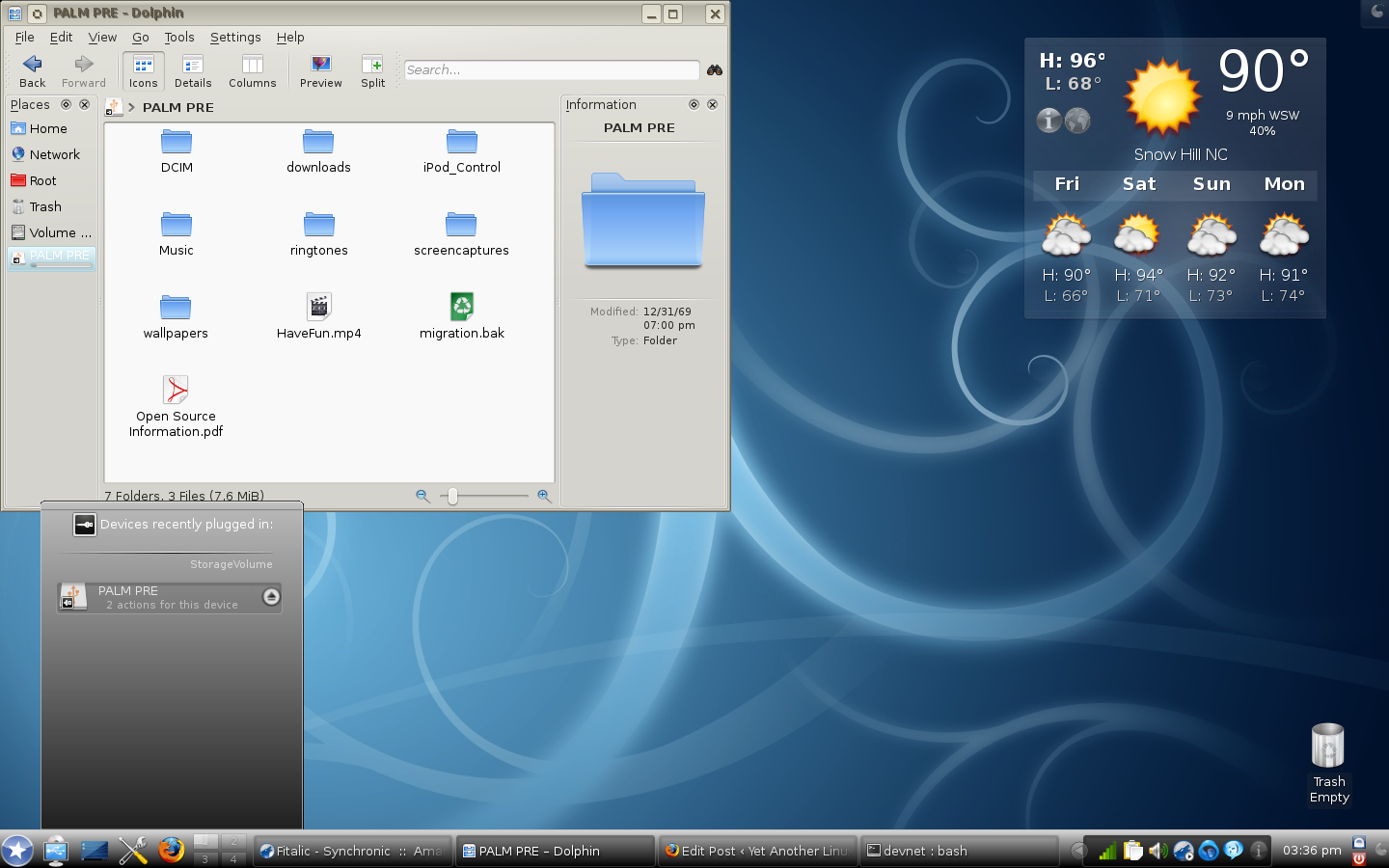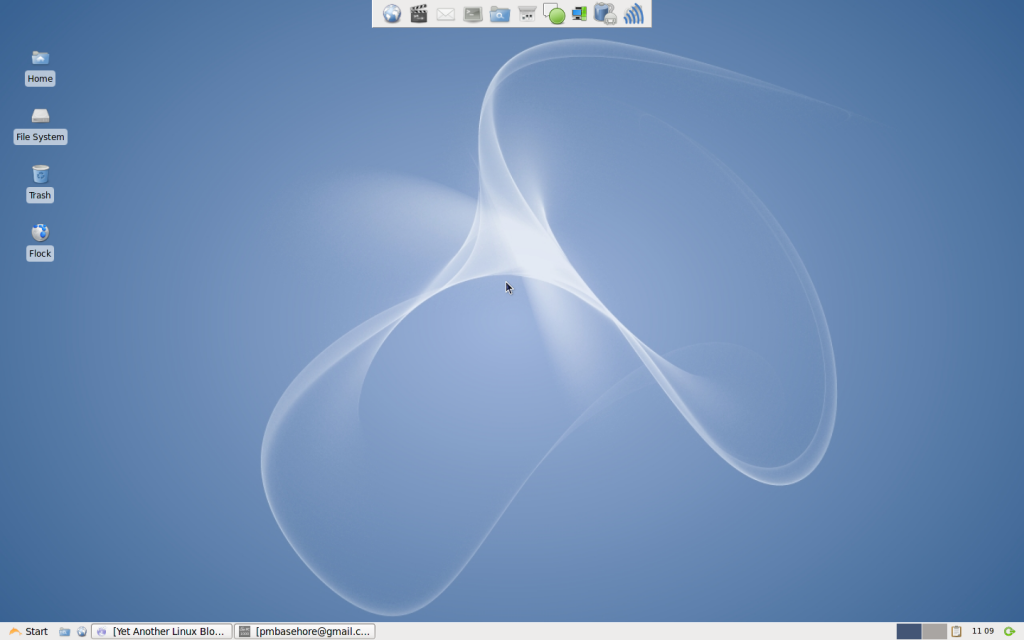Foresight and Fedora (aka “boots, a fedora remix”)
Last week it was reported by LWN and a few other Linux news sites that Foresight Linux may employ a change of direction…that is, create a spinoff project that places the Conary package manager onto a Fedora Linux base. Michael Johnson, Director of Operating Systems at rPath (which maintains the Conary based package manager Foresight uses) summed up his post nicely:
“I think that Foresight needs to be based on an upstream distro that is regularly fully updated and refreshed, and that is maintained by distro specialists with experience and expertise that is just plain missing within the Foresight development community. That distro needs to be imported into a Conary repository; that will allow Foresight to continue to use Conary to manage the process of building a set of consistent modifications relative to that upstream distro, providing a true rolling release. That would allow Foresight developers to concentrate on only the problems inherent in integrating the very latest development source against a recent base that is relatively close to the basis on which the software is maintained.”
Michael also said that it made sense to do this based on Fedora because Foresight is very Fedora-like in filesystem and the way that things are setup and handled in the guts of the operating system (paraphrasing from what I remember of IRC discussion). Also, in a comment on the LWN thread, Michael states that Foresight, if spinning off with Fedora, would still make use of “Conary, rMake, rBuilder, rBuild, and other rPath technology” and would still use Conary as its package manager which means…it wouldn’t leverage rpm and yum to keep things up to date on it.
An independent project that Foresight maintains sounds like a HUGE undertaking…(even though I’m assured repeatedly by developers from Foresight that it won’t be because it’s “automatic”). I’ve seen automagic things in the past that won’t cause a lot of work turn out to be quite a bit of work-that-is-not-work. I find this especially odd when the main complaint is that there aren’t enough OS specialists around…it sounds a bit too large to undertake. This project actually sounds like it possibly would usurp Foresight Main (Foresight Proper…Foresight Linux…whatever you call it) which is based on the stable rPath Linux and not on cutting edge Fedora like the “boots remix” would be. Therein lies the problem. The”boots, a fedora remix” would consistently be ahead of Foresight in development if the project is started and makes progress. Foresight will continually lag behind it. Can a 100% guarantee be given that Foresight can snipe packages from “boots, a fedora remix” that would always work? If not, what does Foresight gain by maintaining the project/spinoff?
I think Foresight won’t be able to maintain an independent project based on Fedora along side of the main Foresight Linux project. Sure, they may be able to at first…but then what happens when things break? Is one person responsible? 2? more than 2? I think instead of having a separate project, Foresight might want to completely base off of Fedora. This topic is extremely unpopular with Foresight developers though.
Whether or not Foresight adopts “boots a Fedora remix” is yet to be decided. It will be set before the Foresight Linux Council at their next meeting. Hopefully, they take into consideration the amount of manpower a separate project like this would encompass and maybe consider the benefits of adopting Fedora completely as a base for Foresight.
On a similar note, António Meireles, a lead developer for Foresight Linux, has posted what direction he would like to see for Foresight Linux 3…the future major release for Foresight. With improved underlying architecture that is more inline with Fedora…he may be looking along the same lines that my post here is. Whatever the case may be, it’s obvious that Foresight is starting to show a flurry of both interest and activity which is a benefit to it.
So where does this leave Fedora? They’ll benefit from having a lot of knowledgeable developers in Foresight and a few engineers from rPath working with a Fedora based project. Foresight has a great upstream relationship with the projects it encompasses…like Gnome and rPath. I would imagine this continued professionalism and cooperation will continue should Foresight base on Fedora.
ClarkConnect Becomes ClearOS
In other news, some of you may or may not know that ClarkConnect will become ClearOS and will be completely open source. The Clear Foundation will be sponsoring the development of ClearOS which is ClarkConnect re-branded with improvements. See the full announcement here. Also, a Forum Announcement Here. This brings a lot to the table including renewed commitments to documentation, community, and the operating system as a whole. The change is set to happen in the late part of 2009.
So what does this have to do with Yet Another Linux Blog? A few years ago, I wrote a review of ClarkConnect 3.2 for home users. It was well received and still gets many hits even today. Since I’ve used ClarkConnect since version 2.1 and continue to use it today for my home network…who better to take a look at how ClearOS will measure up?
With this in mind, I contacted the guys over at the Clear Foundation and they agreed to let me blog a bit about some of the changes and improvements that will be happening with ClearOS over the next few months. So look for more exclusive information from ClearOS in the near future. They’ve also asked if I’d be interested in helping out with some community endeavors they will have going for ClarkConnect and ClearOS users. Exciting stuff! ClarkConnect has really needed this shot in the arm for about the last 2 versions…they lost a couple of really good websites with FAQ’s on them. It’ll be great to get the community involved with this fantastic Home Server distribution.



